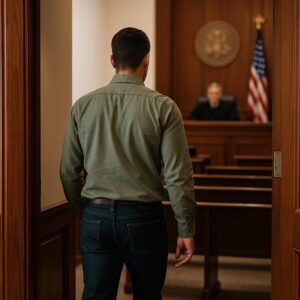In 2017, a 14-year-old girl in Minnesota was arrested for child pornography on charges that could result in up to 10 years on a sex offenders list.
Her alleged crime? Sending explicit photos to a boy she liked of her own age.
Many teenagers do not realize that according to the legal definition, explicit photos that they take of themselves may be considered child pornography. This is true even if they do not sell the photos or share them with anyone over the age of 18.
For parents, this can be concerning. What advice should we give our teens to help them avoid legal trouble? Let’s take a closer look at the relevant Texas law.
The Legal Definition of Child Pornography
It was Supreme Court Justice Potter Stewart who famously said that, even if he could not define pornography, “I know it when I see it.” As catchy as this conclusion is, laws have gotten more explicit in defining what constitutes pornography. This is even more so when it comes to child pornography.
Child pornography is defined by federal law. The federal definition is “any visual depiction of sexually explicit conduct involving a minor.” If an individual is charged with child pornography, they can be prosecuted by both the federal and the state governments.
Does the Definition Apply to Selfies?
Given the legal definition of child pornography, it is easy to see how many states have determined that selfies fall into this category. If a photo depicts a child under the age of 18 in a sexually explicit way, it fits the definition, regardless of who took the photo.
Most states, including Texas, have no provision that exempts self-taken photos from this definition. For this reason, a child who takes an explicit photo, and anyone they share the photo with, could be charged with possessing child pornography. If the photo is shared with a wider network of people, charges of trafficking child pornography become possible.
What are the Laws in Texas?
While all states are bound by federal laws, some states opt to add extra regulations or to interpret and prosecute in different ways.
Currently, Texas prosecutes the sharing of explicit photos of underage children under laws forbidding the digital transmission of such photos. This includes when the photos are shared between two minors under the age of 18.
The primary intention of this policy is to target teens who might digitally transmit such photos to cyberbully other teens. In some cases, a defense against child pornography charges may be made if the pictures only included the sender and/or the recipient, and the two transmitting the photos were in a previously established dating relationship.
Keep in mind that this exception only applies if both parties are under the age of 18. If a minor sends a sexually explicit photograph to an adult, that adult may be charged with possessing child pornography. This is the case even if the two were in a dating relationship.
What is the Penalty?
It is clear that the state of Texas takes child pornography seriously, even in the case of selfies. So what are the potential penalties if an individual is charged with viewing, distributing, or possessing child pornography?
The answer depends on whether the offender is a minor or an adult.
Penalties for Minors
When minors are charged with sending or receiving explicit photos with other minors, it is considered a Class C Misdemeanor. An initial penalty may include a fine of up to $500. Offenders may also be required to attend an education class with a parent.
In some cases, a minor charged with these crimes may be eligible to have their record expunged when they turn 18. That said, if a young person repeats these offenses, they may face higher fines, sex offender registration, or even jail time.
Penalties for Adults
The fines and penalties are also much more severe for adults who receive these images. An adult possessing child pornography may be charged with a third-degree felony.
In these cases, penalties could amount to $10,000 fines, 10 years in prison, or both. For this reason, it is very important for an 18 or 19-year-old dating someone under the age of 18 to be careful not to send or receive explicit images.
Adults who are charged with possessing child pornography will also need to register as sex offenders. In some cases, a juvenile may need to register as a sex offender, but this is less common.
Defenses Again Child Pornography Charges
Of course, in the United States, accused parties are considered “innocent until proven guilty.” This means that, even if you have been charged with child pornography, you have the opportunity to defend yourself.
In some cases, an adult charged with possessing child pornography may be able to defend themselves if they were deceived about the age of the photo’s sender.
Lack of intent can also be another defense. For instance, if a minor receives explicit photos as part of a cyberbullying effort, they may be able to argue that they had no intent to possess those photos.
In the case of minors in a romantic relationship sharing photos, they may still be charged with a misdemeanor, but they may successfully have their penalties reduced.
Get Legal Help for Your Teen
Has your teen been charged with child pornography for taking or possessing selfies? Without the right legal help, your child could be facing a decade or more on a sex offender registry.
Contact us today for a free consultation. We’ll work with you to get your family the legal representation it needs.
Request a Free Consultation with Attorney Mario Madrid:
[contact-form-7 id=”37″ title=”Contact form 1″]





